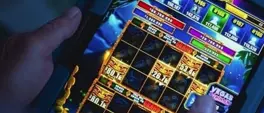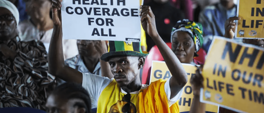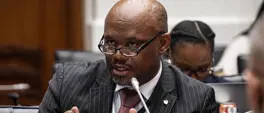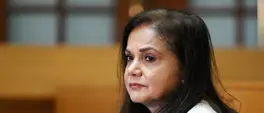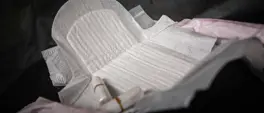Understanding the court ruling on apartheid-era crimes
Ohene Yaw Ampofo-Anti, GroundUp
22 April 2025 | 13:22The case concerned the criminal trial of Christiaan Siebert Rorich and Tlhomedi Ephraim Mfalapitsa facing charges of kidnapping and murder as crimes against humanity, and the crime of apartheid specifically.
In a landmark judgment against members of the apartheid security forces, the Johannesburg High Court has ruled that the state can prosecute apartheid-era crimes, because apartheid is a crime against humanity and there is no time bar on the prosecution of such crimes.
The case concerned the criminal trial of Christiaan Siebert Rorich and Tlhomedi Ephraim Mfalapitsa facing charges of kidnapping and murder as crimes against humanity, and the crime of apartheid specifically. They were members of the Apartheid Security Branch charged with the kidnapping and murder in 1982 of the “COSAS 4” - teenagers Eustice “Bimbo” Madikela, Peter “Ntshingo” Matabane, Fanyana Nhlapo and Zandisile Musi, anti-apartheid activists and members of the Congress of South African Students (COSAS).
The prosecution of these crimes however was only initiated in democratic South Africa nearly 40 years later – in 2021.
The accused made two main legal arguments. First, they argued that crimes against humanity only became offences in South Africa in August 2022 after the country ratified the Rome Statute and passed legislation to this effect. They argued therefore that these acts were not regarded as crimes in South African law at the time they took place.
In terms of the Constitution, an accused has a right to a fair trial, which includes the right not to be prosecuted for an act that was not a crime at the time it took place.
They also argued that even if it were a crime, the power to prosecute lapsed after 20 years and to prosecute them 40 years later would violate their right to a fair trial. Finally, they argued that there had been political interference in their prosecution and that the charges were brought too late, which denied them a right to a speedy trial without undue delay.
The National Prosecuting Authority and the Legal Resources Centre (LRC) which was admitted as a friend of the court, argued that crimes against humanity including apartheid are a part of customary international law and that the Constitution requires courts to abide by international law.
They said crimes against humanity originate from the prosecution of Nazi generals during the Nuremberg Trials after World War II and have become part of international law since then. They argued that apartheid is a crime against humanity because it involved inhumane acts committed as part of a widespread and systematic campaign against black civilians and opponents of the regime. The charges against Rorich and Mfalapitsa related to acts committed in furtherance of this objective, they said.
The main questions the court had to consider were:
- whether apartheid was a crime against humanity and thus a crime at the time the acts were committed; and
- whether any attempt to prosecute such crimes had an expiry date.
In his ruling on 14 April, Judge Dario Dosio noted that the Constitution explains that customary international law is automatically law in South Africa unless it is inconsistent with the Constitution. This means that it is not necessary for South Africa to have formally signed and ratified a treaty concerning that law, nor is it necessary for Parliament to pass legislation to this effect. This approach had been confirmed by the Constitutional Court on several occasions, he said.
Turning to apartheid, the judge defined it as a system of racial segregation and discrimination which was designed to maintain the domination of the white minority over the black majority. He pointed out that enemies of the state had been subjected to imprisonment, kidnapping, torture, police brutality and assassinations. The UN General Assembly had declared apartheid a crime against humanity in 1966. More importantly, in 1973, the Apartheid Convention came into effect – an international treaty which criminalised apartheid and sought its suppression and punishment worldwide.
In democratic South Africa, the Truth and Reconciliation Commission confirmed that apartheid was a crime against humanity. The judge concluded that apartheid had been a crime against humanity for at least 79 years.
Referring to decisions of the Constitutional Court, Judge Dosio said that it had been accepted that crimes against humanity under customary international law can be prosecuted in terms of the Constitution. Based on this logic, the Court found that these constitutional provisions provided a pathway for the prosecution of crimes against humanity which occurred in South Africa before 1994.
Turning to the question of whether there is a time bar date for prosecutions, he found that there was not.
He referred to the Convention on Statutory Limitations, which set out that there are no statutory limitations (expiry dates) on the prosecution of crimes against humanity. This convention dates from the aftermath of World War II when war criminals during the Nuremberg and Tokyo Tribunals raised such arguments.
The judge said in other countries the courts had made a similar finding, that there was no expiry date for prosecution for crimes against humanity. These included Argentina, Australia, Canada, Chile, Estonia, Germany, Latvia, Spain, the United States, Uganda and Uruguay. The Inter-American Court had come to the same conclusion.
As a result, though South Africa is not a signatory to the Convention on Statutory Limitations, the judge found there can be no time bar for the prosecution of crimes against humanity committed in South Africa. Based on these findings, he found no violation of the accused’s right to a fair trial.
Turning to the last question on political interference and undue delay in the prosecution, the Judge noted that it was regrettable that the NPA had taken so long to prosecute apartheid-era crimes referred to it by the TRC. Despite this, he said, the interests of justice still required the prosecution of such crimes, given their gravity and impact on South African society both in the past and present.
The judgment paves the way for the prosecution of hundreds of apartheid-era crimes which were referred to prosecution by the Truth and Reconciliation Commission.
This article first appeared on GroundUp. Read the original article here.
Get the whole picture 💡
Take a look at the topic timeline for all related articles.

